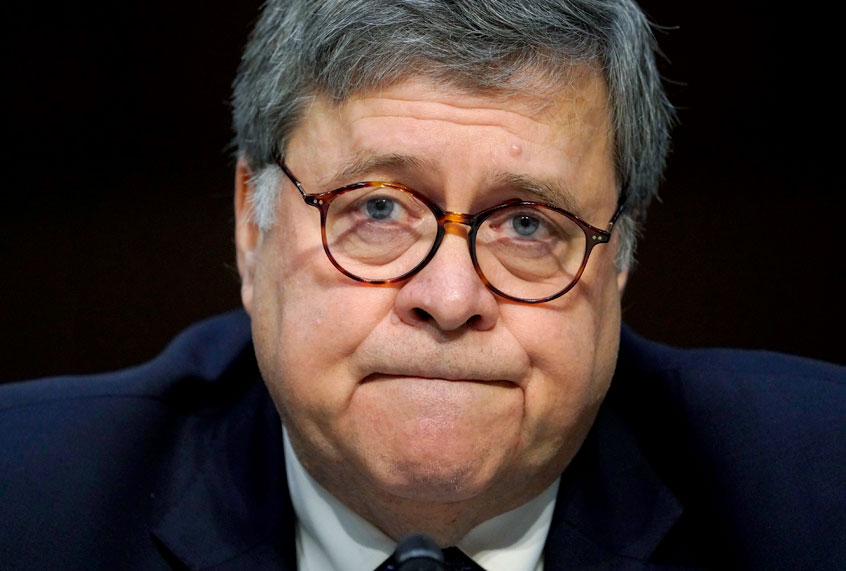Attorney General William Barr has assigned a federal prosecutor in Connecticut to examine the origins of the investigation into Russian interference in the 2016 presidential election, according to a new report.
John H. Durham, the U.S. attorney in Connecticut, has been tapped by the nation’s chief law enforcement officer to dig into the probe’s inception, The New York Times reported Monday night, citing two individuals familiar with the matter. His inquiry is the third known investigation focused on the FBI’s counterintelligence investigation during the 2016 election into alleged ties between President Donald Trump and Moscow, the newspaper noted.
Department of Justice Inspector General Michael E. Horowitz is separately reviewing how investigators used wiretap applications and informants, as well as whether political bias against Trump motivated investigative decisions. John W. Huber, the U.S. attorney in Utah, is also examining aspects of the Russia investigation.
Senate Judiciary Chairman Lindsey Graham, R-S.C., has said he, too, intends to review aspects of law enforcement’s work in the coming months. And Republicans conducted their own investigations when they controlled the House of Representatives, including revealing details of the FBI’s wiretap use.
Durham was nominated by Trump in 2017 after serving as a lawyer within the Justice Department since 1982, according to The Times. He has a history of conducting special investigations under administrations of both parties.
In 2008, former Attorney General Michael B. Mukasey assigned Durham to investigate the CIA’s destruction of videotapes which showed terrorism suspected being tortured.
Durham’s assignment is likely to please the White House and Republicans, who have long claimed an anti-Trump bias at the Justice Department and FBI spurred federal investigations into the president’s alleged ties to Russia during the 2016 election. The news, however, is likely to anger Democrats and law enforcement officials, who believe examining Trump’s ties to Moscow was lawful.
Bloomberg News reported last month that Barr had assembled a team to investigate the actions of the Justice Department and FBI leading up to the Russia investigation. He told lawmakers around that time that he was “reviewing the conduct of the investigation and trying to get my arms around all the aspects of the counterintelligence investigation that was conducted during the summer of 2016.”
Barr also testified before a Senate Appropriations subcommittee that he believes “spying” by law enforcement officials on Trump’s presidential campaign “did occur.” At the time, he did not detail any wrongdoing by intelligence officers but said, “I think there was probably a failure among a group of leaders there at the upper echelon. I feel I have an obligation to make sure that government power is not abused.”
FBI Director Christopher Wray defended the bureau last week amid accusations that agents abused their powers by investigating the Trump’s campaign, saying he was unaware of any illegal surveillance activities taken up by the FBI and refusing to describe investigative work as “spying.”
Durham’s new assignment comes just weeks after Barr released a redacted version of special counsel Robert Mueller’s report, which detailed the findings of his nearly two-year investigation into Russian interference in the 2016 presidential election and alleged ties between Trump and the Kremlin.
Mueller’s investigation did not uncover evidence of collusion between the Trump campaign and Moscow. The special counsel identified ten documented episodes of possible obstruction by the president, although he did not come to a conclusion as to whether Trump had attempted to obstruct justice.

